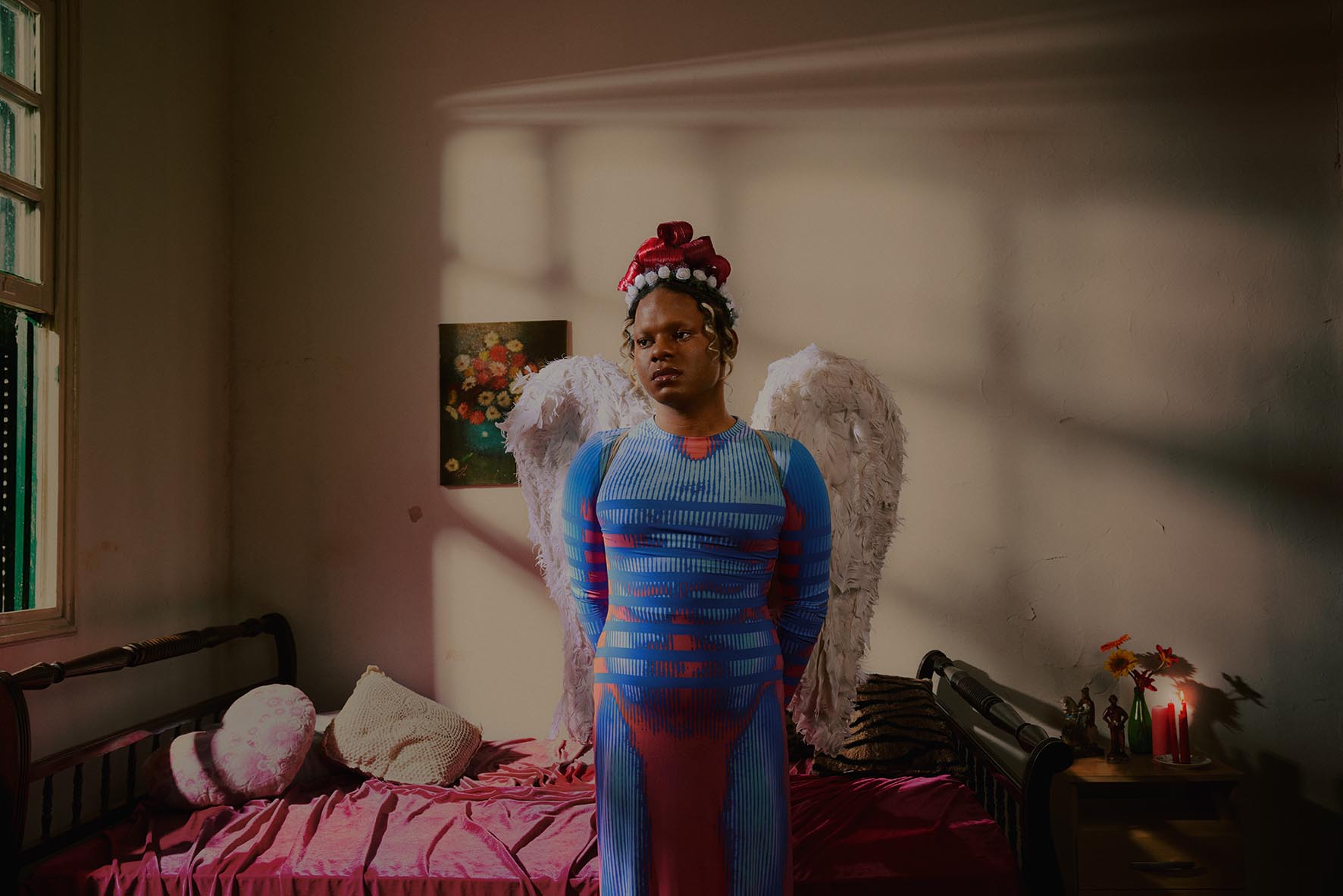
URIAS: I also appreciate the invitation from my sister Ode for this interview and the opportunity to have this conversation with you.
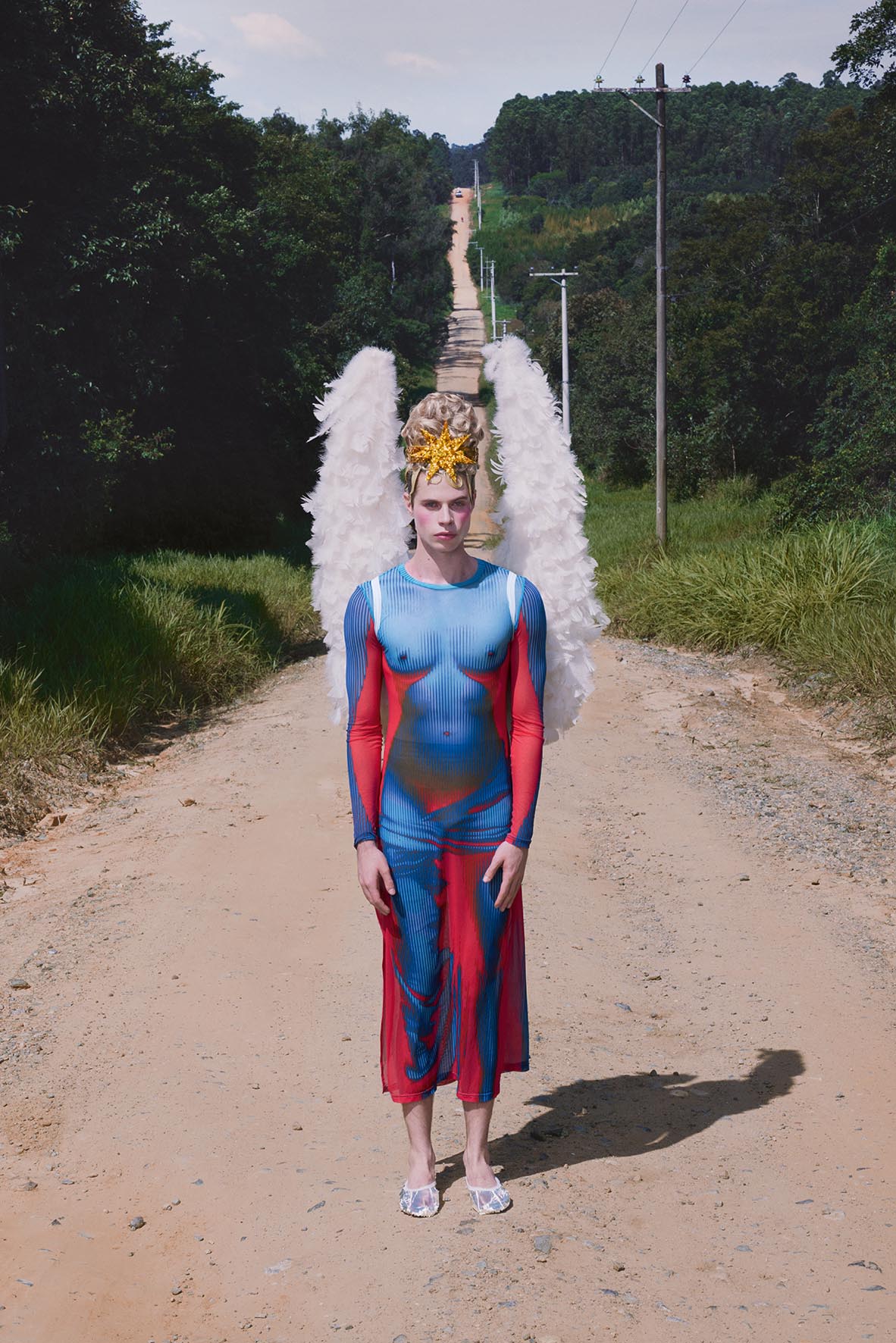
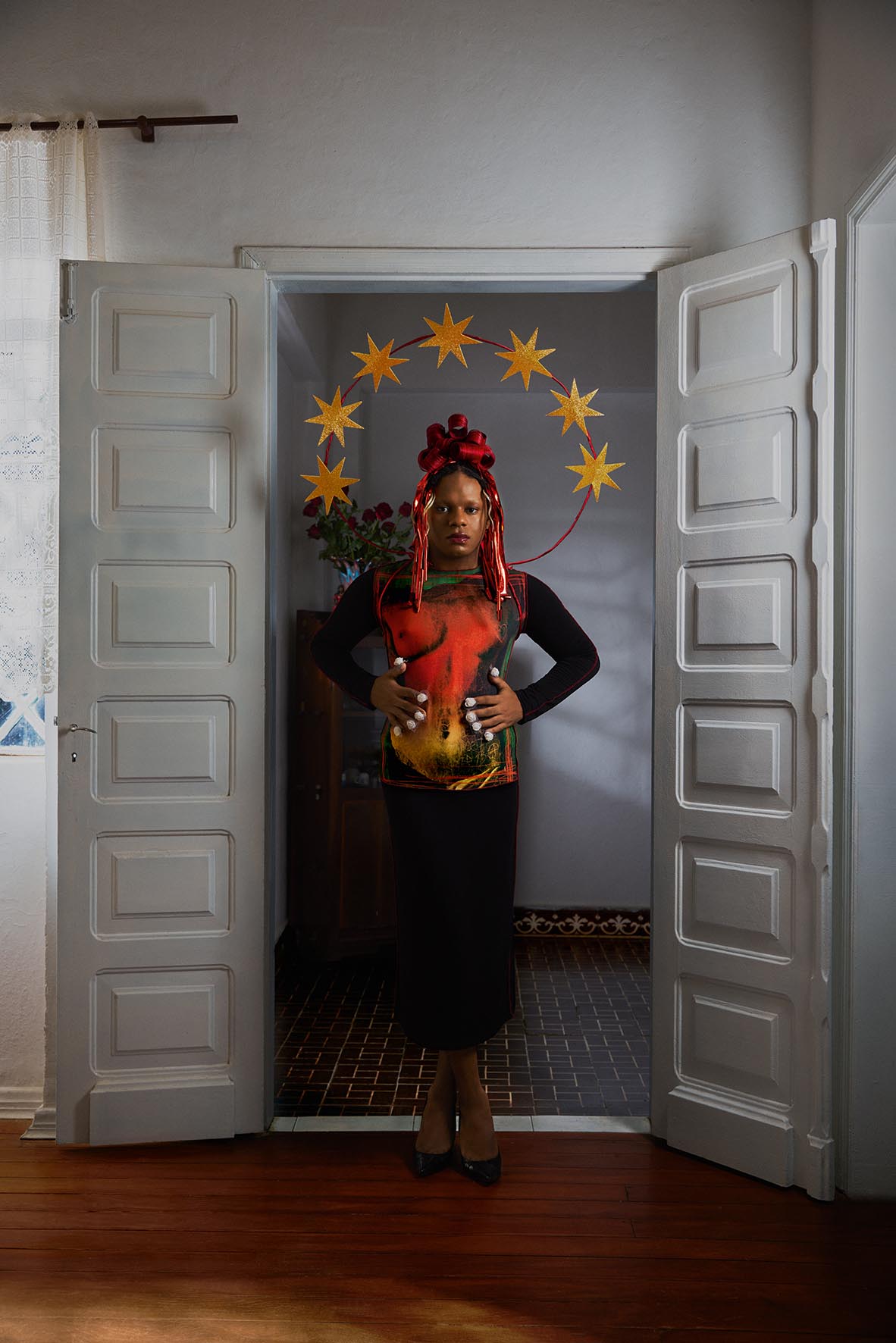
URIAS: To be honest, these quotes were created during a time when I wanted to express how much I do for myself. They reflect on many different things, as the reason I do what I do is because at some point one of these things had an impact on me. Some of them resonated with me and have stayed with me, while others helped me escape and avoid various things that were happening in my life. I'm glad you brought this up, as no one has ever stopped to pay attention to these lyrics. It's in this space where I choose which part of myself to show, giving me the power to control how I present myself.
When I started writing, I always had the strategy of writing something that everyone could identify with if they wanted, but that would be different when it hit people who are the same as me, trans, travestis and racialized women. That we would know what we were talking about, even those who are cis, and outside of our scope, understood in a more general way. We would know in this specificity what was going on.
I discovered this thing about the power of words during all of this too, before I knew a lot about the power of wanting. I want it all, I want it now. I believe that the limit of my desire was the beginning of the power of my words. I learned that even if I couldn't have what I wanted right away, I needed to start channeling my energy as if I was already making progress towards my goal. Everything kind of changed for me when I found myself in the role of a prophet. The power of the word came to me when the power of desire was no longer enough. This power has manifested itself in me and continues to do so.
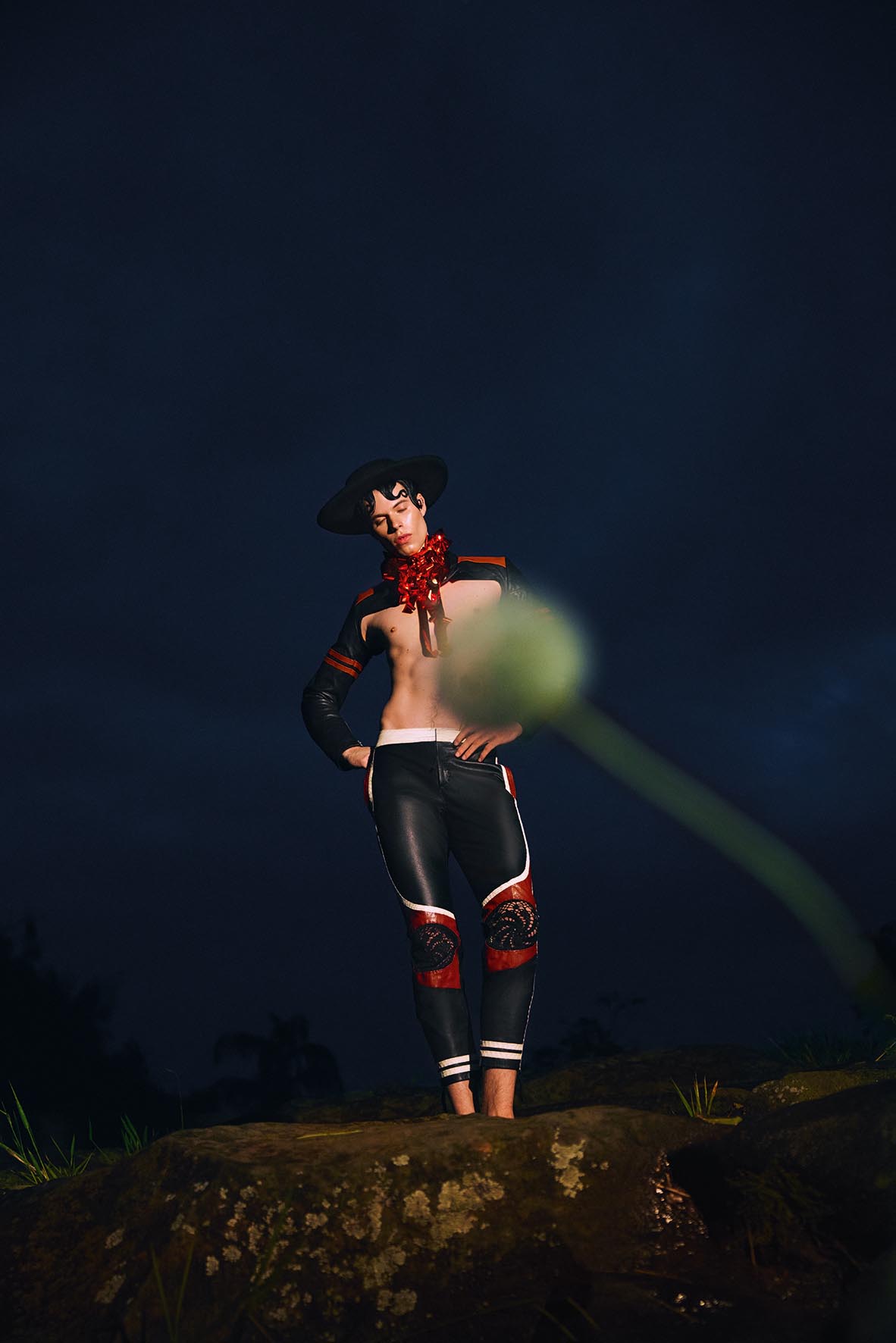
URIAS: I feel we experience a unique rush due to the constant presence of death. It seems like nowadays, we are always in a rush to get things done, as we are unsure of what the future holds. However, I have recently realized that I am not as hurried as I used to be. This has allowed me to have more time to contemplate, enjoy life, comprehend situations, and not just exist. It has been quite a unique experience that I haven't encountered in years, doing things without any particular reason, just because I want to. My perception of time has become more fluid, similar to a river, providing a sense of calmness.
URIAS: This song is very significant to me because it was born during a time when my femininity was being questioned. It represents the beginning of my journey towards self-discovery, understanding and acceptance. I realized that this journey requires patience and perseverance, but I was determined to embark on it anyway. I didn't know where this journey would take me, but I knew I had to start. It's all about taking that first step towards finding our place in the world and making a positive impact.
Knowing that even though I'm not there, my branches will grow and they will reach more and that I need to take care of myself, take care of everything, understand that I am sprouting and for that, I need to take care because these branches get there. While it can be exhilarating, we must also be cautious as the world can sometimes be harsh. I always try to move forward and show people the opposite, that things can be better. Over time, my perception of life has changed, even in social situations, and I now realize the impact that I can have on the lives of people I don't even know. This realization is refreshing, but it also comes with a sense of responsibility that is not mine, yet I embrace it nonetheless. It gives me strength and motivates me to keep moving forward.
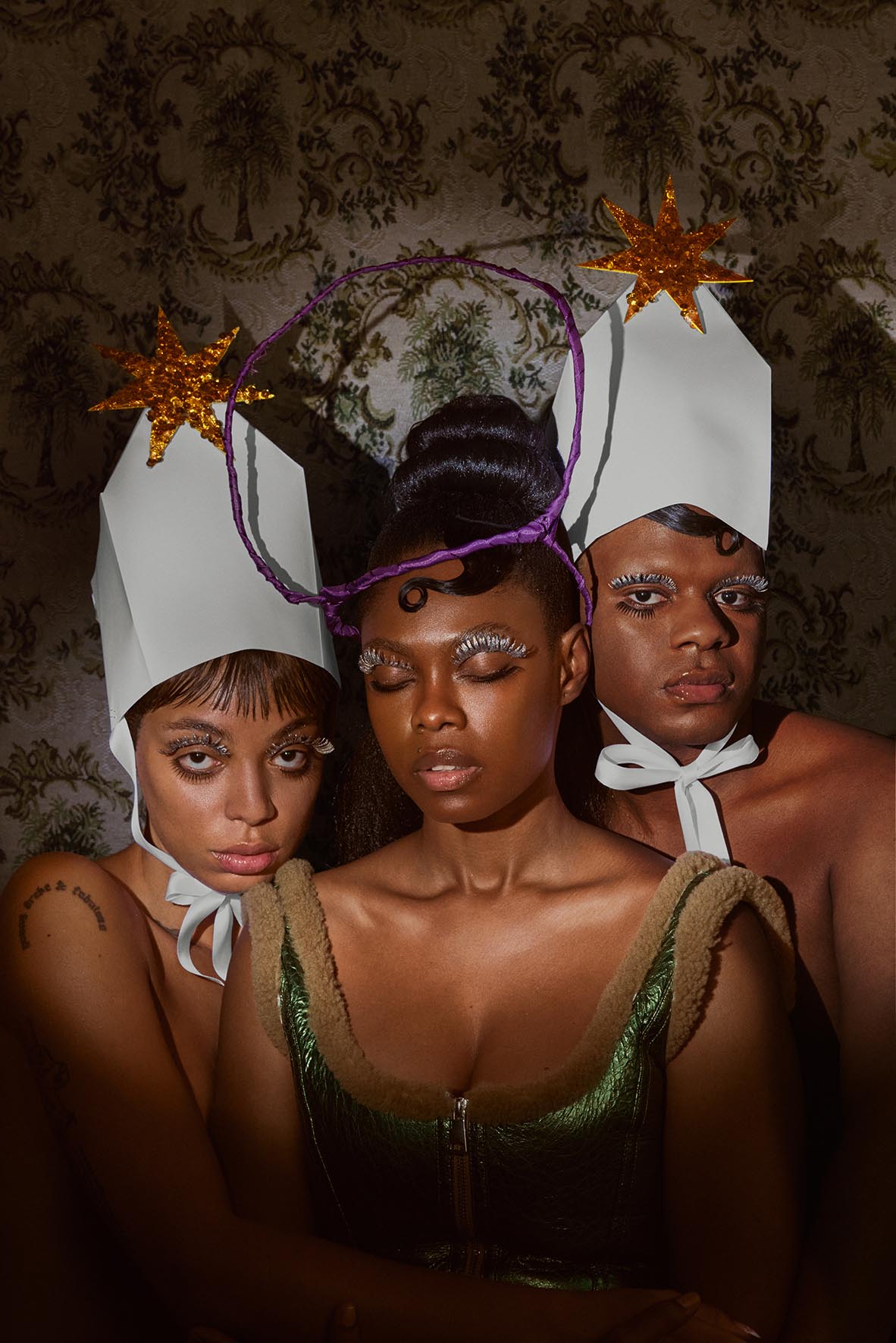

URIAS: Lately, I have been sacrificing many mundane things to make room for the good things that are not mundane, and that keep me on the right path. This helps to balance out the feeling of having to give things up for the sake of my protection and preservation, while also avoiding overexposure. Going out into the world means a lot to me, and I have made many sacrifices to be able to do so safely, but when I can enjoy these things, they have a much deeper meaning. It's about finding a balance, like you mentioned earlier with dribbling. I believe it also involves strategy.
You mentioned our obligation, and I think sacrifice is a part of it. However, sacrifice doesn't necessarily have to be violent. I believe it's more about finding pleasure in it. Sacrifice can be a pleasurable experience. It's all connected to the spiritual aspect we discussed earlier, about giving and receiving, and how it's a necessary exchange to be good to ourselves and the world around us. This understanding has helped me feel much calmer about the idea of sacrifice.
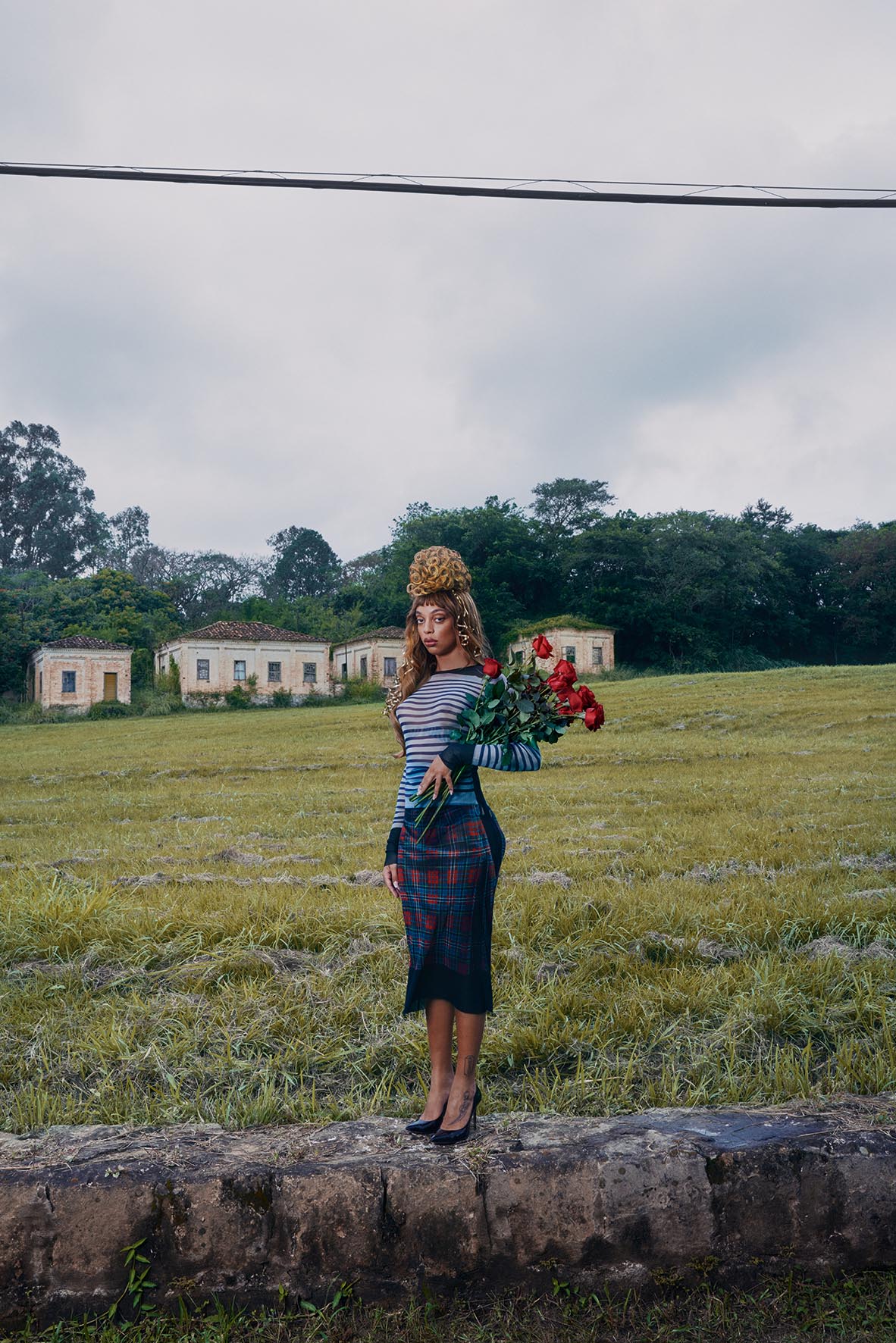
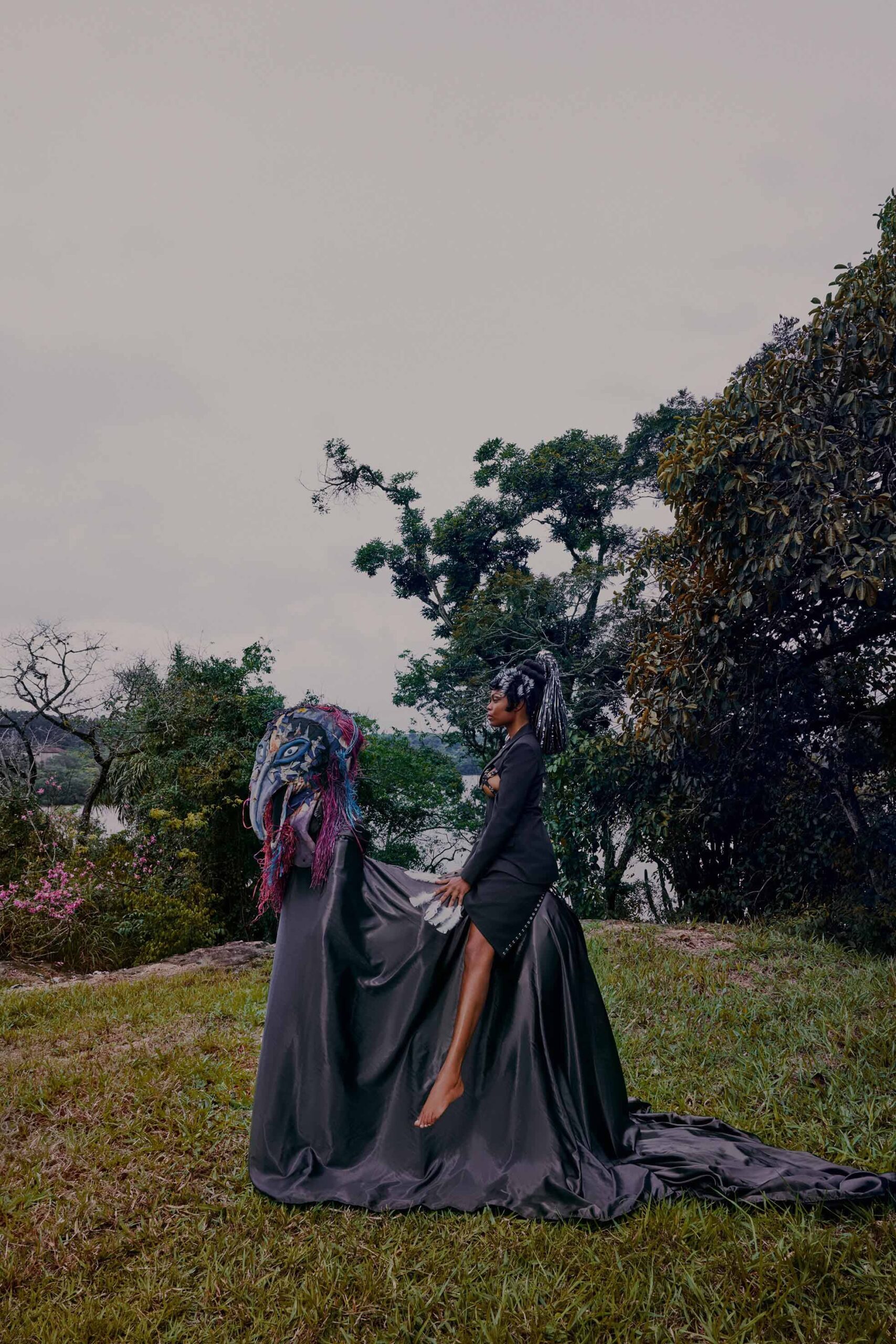
URIAS: I believe that I first experienced love during my transition. When we go through a transition, we discover ourselves and others, and we find where we fit in. My initial experience of love was when I started to feel comfortable with myself.
From an outsider's perspective, my understanding of love began when I realized the unspoken pact and respect we have within our community. It is not something that is discussed, signed, or agreed upon, but rather felt and understood. The way we respect our elders is unique. No older travesti and trans woman comes to you and says " My dear, this is how things are done". Hahaha! You look around you, you read your environment and you understand. Love is a crucial component in our survival. It is something that we cannot live without.
Everything we do is for the sake of love. Because we are thirsty for love because we are hungry for love. And because we also have a lot of love to give. I think love is abundant in us. It has been stored for a long time. So it's a lot. We're full of love.
ODE: Yes, we're full of love… Thank you so much for accepting my invitation to go to the spiritual dimensions and offer something so beautiful to Divine. I love you both.